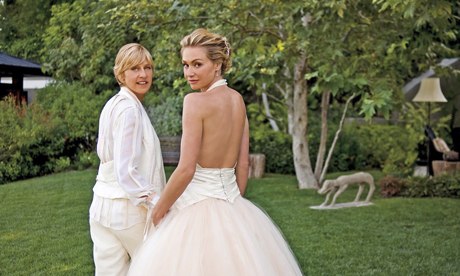
Vegan used to be one of those insults thrown around with the same mainstream anti-beard incomprehension as "socks and sandals" or "Guardian reader". Unfortunately, since the latter two became cool – and beards did too – the former's prospects are also looking up. So it's time to revise our ideas of who's a weirdo and who isn't.
You can't swing a nut roast right now without hitting something to do with veganism – whether it's the arrival from Germany of the first all-vegan supermarket chain, Veganz, or the 22-day no meat, no dairy diet that Beyoncé and Jay-Z have just celebrated the end of (well you would, wouldn't you?).
Then there's the vegan couple in their 60s who have just completed a year of running marathons every day, eating only bananas; the trendy vegan blogger and chef Isa Chandra Moskowitz, who has a new book out and 30,000 Twitter followers, not to mention Tal Ronnen, the guru behind Oprah's vegan cleanse, Ellen DeGeneres' vegan wedding, and the first vegan dinner at the US Senate.
And that's just the famous ones. There was a recent vegan festival where I live – north London, sure, but quite a grotty part of it – and it was well attended despite the lashing rain. How those participants in socks and sandals stayed dry, I'll never know.
So has veganism stopped being a joke? In the old days, it was mentioned in the same breath as "fruitarianism", which shares a common root of ugly footwear but was what the really joyless people did in the 70s, and what landed Ashton Kutcher in hospital this time last year. (No, I didn't have him down as a fruitarian either.)
But it's easy enough to see, in these days of horse lasagne and milk more full of hormones than a teenager, why people are restricting their diets to things they can trust. Veganism tallies with the zeitgeist of opting out of consumer society, of eating locally, of growing a beard and becoming very earnest. And the middle classes refine their diets with every generation – in the meat-happy post-CJD late 90s, even vegetarianism was presented as an alternative lifestyle choice. Once upon a time, buying organic practically made you Edward Carpenter.
I have a friend who went non-dairy five years ago. At the time it seemed like she did it just to be rude to the waiters in mid-priced Italian restaurants. But in the past year, three more friends have followed suit, one for allergies, one for depression – and one just because she feels better without dairy products.
That's what it's about, after all. While the near-religious vegan zealot paradigm might endure at the front of our brains, there's a cheese-ravaged lower cortex that knows that eating great quantities of some things simply isn't very good for you.
No doubt the rise in veganism has plenty to do with eating fashionably – there are any number of raw food, sugar water, saline drip extreme diets shipped over from LA at this time of year to lure the would-be January convert. There's every chance many people will try out veganism for three days because they ate too many mince pies last week. And there's the ample tranche for whom faddy eating is a handy disguise for whatever issues they might have with food itself.
But for many, it presents a viable way to navigate health concerns and the ethics of what the hell we're even eating anymore. And there's an irony more delicious than the spiciest beanfeast: where once vegans were accorded a contempt reserved for the worst sort of loser, they are now likely to be some of the most popular people on Instagram, showing off plates of butternut squash the way Rihanna does her bottom, their socks and sandals just out of shot.

